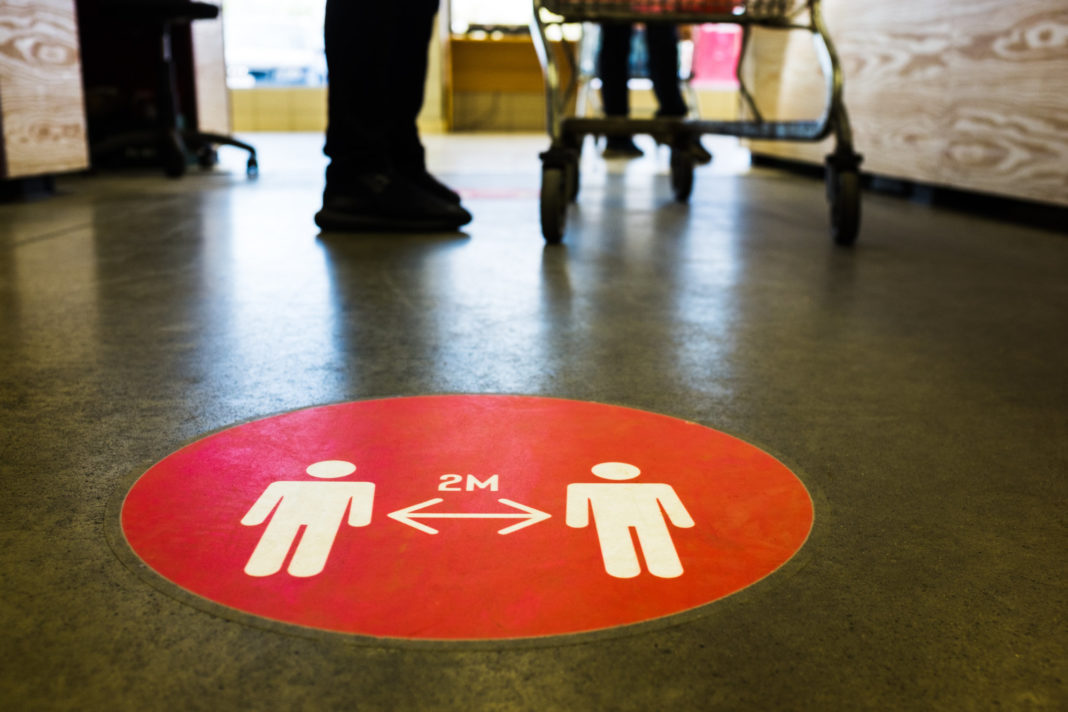Shopworkers have reported a rise in cases of verbal, physical or sexual harassment in the workplace sparked by the Covid-19 pandemic, according to a new study by national law firm Foot Anstey.
In addition, the majority believe the lifting of many restrictions on July 19– ‘Freedom Day’ – had exacerbated, not diminished, the level of harassment.
Foot Anstey‘s survey of 1,048 shopworkers found that 61% had experienced some form of offensive behaviour while working for their current employer, for whom the impact manifested as stress (45%), anxiety (43%) and a loss of self-esteem (19%).
Today’s (Sep 9) survey findings follows an open letter in July calling for greater legal protection for retail workers, which was signed by the leaders of 100 retailers, including Ikea, Sainsbury’s and Tesco, and organised by the British Retail Consortium (BRC).
Foot Anstey’s study supports this suggestion of a need for greater protection. Half of respondents (50%) noted a rise in harassment during the Covid-19 pandemic (versus 42% who did not), and of that group 95% had seen a rise in verbal harassment, one in five (20%) physical harassment, and 5% sexual harassment within their working environment.
Shopworkers identified masks (57%), social distancing (45%), limits on customer numbers in store (38%) and stock shortages (36%) as the main causes of confrontation. Additionally, the majority believed enforcing their retailer’s Covid safety measures after ‘Freedom Day’ resulted in a rise of aggressive behaviour; 52% agreed, versus 21% who did not.
However, nearly three-quarters of shopworkers (72%) agreed having Covid safety measures in stores made them feel safer, versus just 10% who did not. Almost two-thirds of shopworkers wanted to see masks (65%), protective screens (65%) and social distancing (64%) remain in place for the foreseeable future, and 37% wanted a continued limit on numbers in-store, highlighting retail workers’ unease at going back to pre-pandemic working environments and the need to strengthen protection for retail workers.
Nathan Peacey, partner and head of retail and consumer at Foot Anstey said: “Our 2021 study paints an unpleasant picture of the experiences of many retail workers during the Covid-19 pandemic. It is concerning to see that the majority of these keyworkers faced physical, sexual or verbal harassment as they went about their daily work, and that significant numbers experienced mental health issues as a direct result.
“Creating safe places to work and shop is a key theme for retailers, and we have seen them increase the pressure on government to take effective steps, whilst doubling down on their own efforts to look after their people. Retail workers told us they felt there were not enough laws in place to protect them. It is essential that existing laws are enforced, or news ones brought in, to support retailers’ own protocols, guidance and response measures and support those on the retail frontline feel safer and supported.”
Key data from the Foot Anstey Retail Harassment Survey:
- 61% of shopworkers have experienced offensive behaviour while working for their current employer
- Half (50%) noted a rise in harassment during the COVID-19 pandemic (42% did not, 8% did not know). Of those that had seen a rise:
- 95% noted it was verbal harassment
- 20% noted it was physical harassment
- 5% noted it was sexual harassment
- Masks (57%), social distancing (45%), limits on customer numbers in store (38%) and stock shortages (36%) were cited as the main causes of confrontation
- 52% reported a rise in aggressive behaviour when enforcing their retailer’s COVID safety measures after Freedom Day on 19 July – 21% did not.
- 72% believed COVID safety measures in stores made them feel safer, versus just 10% who did not. The safety measures favoured included:
- Masks 65%
- Protective screens 65%
- Social distancing 64%
- Limit on customer numbers in-store 37%
- 65% believed there are not enough laws in place to protect shopworkers
- 65% wanted zero tolerance messages to customers and 42% highlighted a need for clear guidance on how to report harassment
- 57% felt their retailer cared about protecting staff from inappropriate behaviour, versus 36% who did not.
- 20% had raised a grievance with their retailer as a result of inappropriate behaviour.








